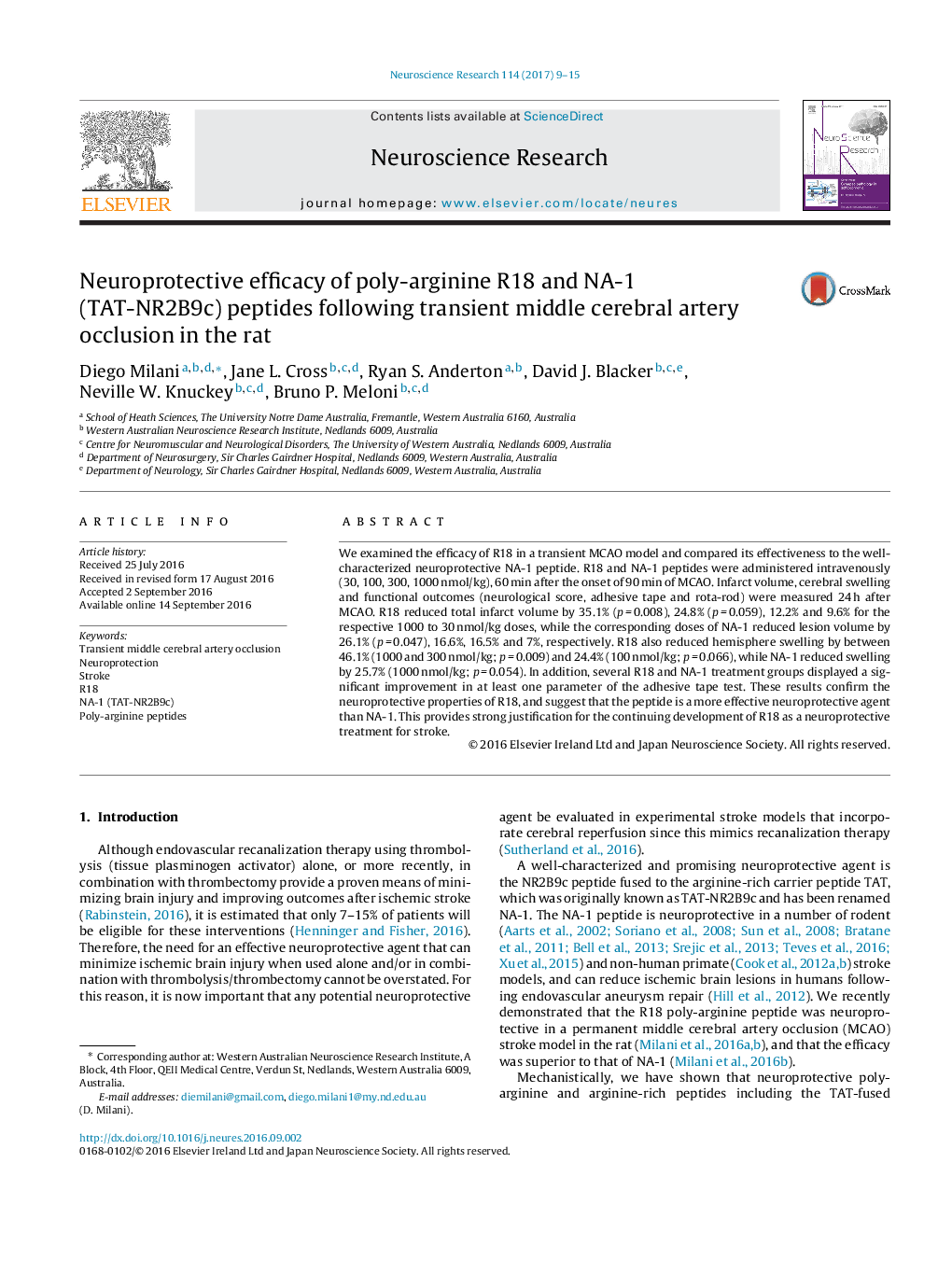| Article ID | Journal | Published Year | Pages | File Type |
|---|---|---|---|---|
| 5738970 | Neuroscience Research | 2017 | 7 Pages |
â¢R18 peptide reduces infarct volume following transient MCAO in the rat.â¢R18 is neuroprotective when administered 60 min after the onset of MCAO.â¢R18 reduces cerebral edema and improves functional outcomes.â¢R18 appears more effective than the highly characterized NA-1 peptide.â¢R18 is a potential neuroprotective treatment for stroke.
We examined the efficacy of R18 in a transient MCAO model and compared its effectiveness to the well-characterized neuroprotective NA-1 peptide. R18 and NA-1 peptides were administered intravenously (30, 100, 300, 1000 nmol/kg), 60 min after the onset of 90 min of MCAO. Infarct volume, cerebral swelling and functional outcomes (neurological score, adhesive tape and rota-rod) were measured 24 h after MCAO. R18 reduced total infarct volume by 35.1% (p = 0.008), 24.8% (p = 0.059), 12.2% and 9.6% for the respective 1000 to 30 nmol/kg doses, while the corresponding doses of NA-1 reduced lesion volume by 26.1% (p = 0.047), 16.6%, 16.5% and 7%, respectively. R18 also reduced hemisphere swelling by between 46.1% (1000 and 300 nmol/kg; p = 0.009) and 24.4% (100 nmol/kg; p = 0.066), while NA-1 reduced swelling by 25.7% (1000 nmol/kg; p = 0.054). In addition, several R18 and NA-1 treatment groups displayed a significant improvement in at least one parameter of the adhesive tape test. These results confirm the neuroprotective properties of R18, and suggest that the peptide is a more effective neuroprotective agent than NA-1. This provides strong justification for the continuing development of R18 as a neuroprotective treatment for stroke.
